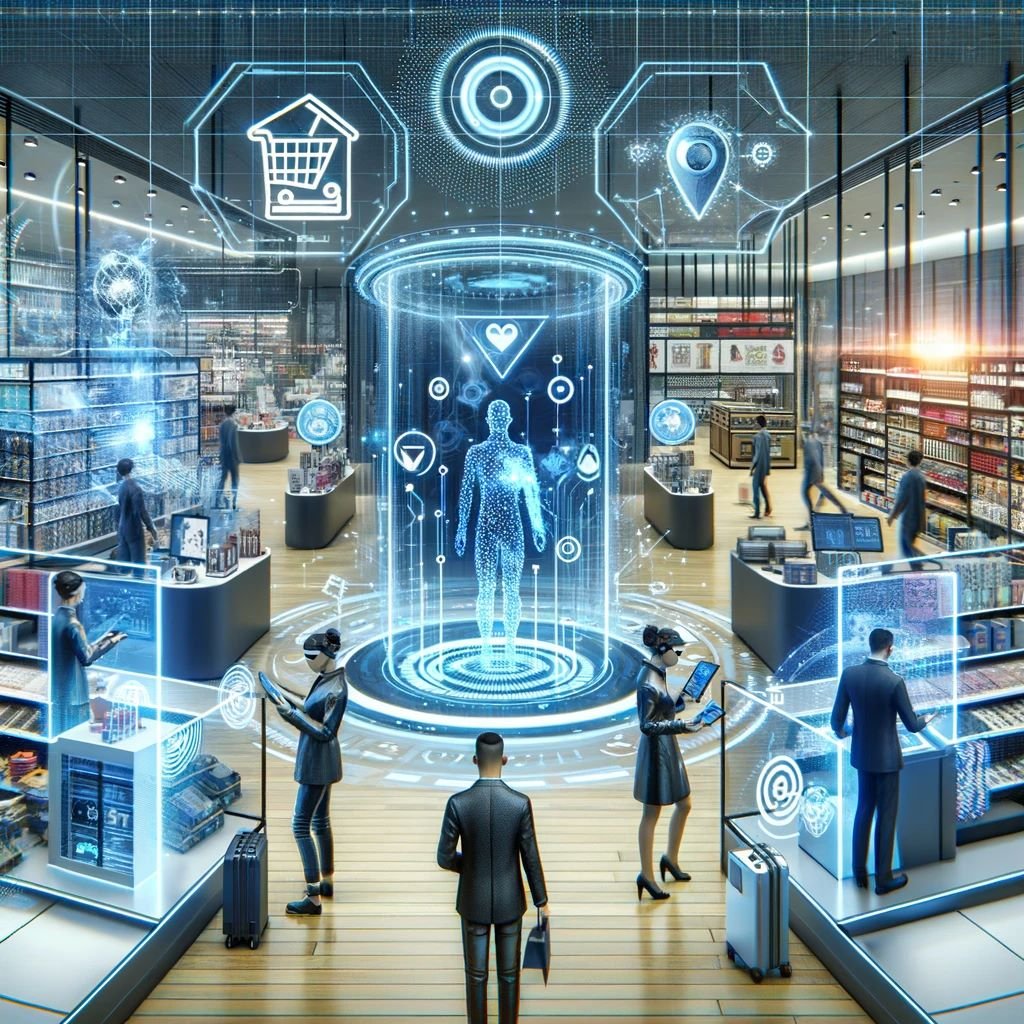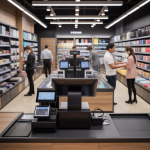
Future Trends and Potential Developments: Shaping the Next Era of Retail
The retail industry is at a pivotal juncture, with emerging technologies and shifting consumer behaviors driving significant changes.
Understanding future trends and potential developments is crucial for retailers to stay competitive and relevant.
This article explores the key trends and innovations likely to shape the future of retail.
Emerging Technology Trends in Retail
Augmented Reality (AR) and Virtual Reality (VR)
AR and VR technologies are poised to transform the shopping experience.
From virtual try-ons in fashion to AR-guided navigation in stores, these technologies will enhance customer engagement and provide immersive shopping experiences.
Artificial Intelligence and Machine Learning
AI and machine learning will continue to advance, offering more sophisticated data analysis, personalized shopping experiences, and efficient inventory management.
Chatbots and AI-driven customer service tools will become more nuanced and context-aware.
Internet of Things (IoT)
IoT in retail will see significant growth, with connected devices providing real-time data to optimize operations, enhance customer experiences, and improve supply chain management.
Blockchain for Supply Chain Transparency
Blockchain technology is expected to play a crucial role in supply chain management, offering enhanced transparency and traceability of products from manufacturer to consumer.
Consumer Behavior and Retail Strategies
Shift to Omnichannel Retailing
The line between online and offline shopping will continue to blur, with omnichannel retailing becoming the norm.
Retailers will focus on providing a seamless and consistent experience across all channels.
Sustainability and Ethical Practices
Consumer awareness of environmental and ethical issues will drive retailers to adopt more sustainable and ethical practices.
This includes sourcing eco-friendly products and minimizing the environmental impact of operations.
Personalization at Scale
Advancements in AI will enable retailers to offer personalization at an unprecedented scale, catering to individual customer preferences in product offerings, marketing, and overall shopping experience.
Innovation in Retail Operations
Automated and Smart Stores
The concept of cashier-less stores, pioneered by initiatives like Amazon Go, will expand, with more retailers experimenting with fully automated store formats.
Advanced Analytics for Decision Making
Data analytics will become more sophisticated, driving decision-making processes in retail.
Retailers will use predictive analytics for everything from inventory management to personalized customer interactions.
Robotics in Warehousing and Logistics
Robotics technology will continue to revolutionize warehousing and logistics, with automated systems handling tasks like packing, sorting, and transporting goods.
Challenges and Considerations
Navigating Digital Transformation
Retailers will need to strategically navigate the digital transformation, ensuring the integration of new technologies aligns with their business goals and customer expectations.
Data Security and Privacy
As reliance on digital technologies increases, so will the challenges related to data security and privacy.
Retailers will need to invest in robust cybersecurity measures and adhere to data protection regulations.
Skilling and Reskilling Workforce
The evolving retail landscape will require a workforce skilled in new technologies and adaptable to change. Continuous training and development will be crucial.
Conclusion
The future of retail is dynamic and promising, marked by technological innovations, evolving consumer expectations, and new operational models.
Retailers who anticipate and adapt to these changes will be well-placed to thrive in the upcoming era.
Embracing technology, focusing on sustainability, and maintaining a customer-centric approach will be key to success in the evolving world of retail.
Lessons Learned and Best Practices in Retail: Insights from Industry Leaders
In the dynamic and ever-evolving retail industry, learning from experiences and adopting best practices is crucial for success.
Retail businesses, from small boutiques to large chains, encounter various challenges and opportunities.
Analyzing the lessons learned and best practices from industry leaders can provide valuable insights for retail businesses at all levels.
This article discusses key takeaways and proven strategies in retail management.
Embracing Digital Transformation
Integrating Omnichannel Strategies
Successful retailers have learned the importance of offering a seamless shopping experience across online and offline channels.
Investing in an omnichannel approach not only enhances customer satisfaction but also drives sales growth.
Leveraging Data Analytics
Using data analytics to understand customer preferences and buying behavior has become a best practice.
Retailers are using these insights to tailor their marketing, stock management, and customer service strategies.
Prioritizing Customer Experience
Personalization of Services
Providing personalized experiences, whether through product recommendations, tailored marketing, or individualized customer service, has proven to be effective in increasing customer loyalty and retention.
Investing in Customer Service
Top retailers emphasize the importance of high-quality customer service.
Training staff to be knowledgeable, friendly, and helpful is key to creating positive customer experiences.
Efficient Inventory and Supply Chain Management
Adopting Just-in-Time Inventory Systems
Learning to manage inventory efficiently, often through just-in-time systems, minimizes waste and reduces storage costs.
It also ensures that products are available to meet customer demand.
Building Resilient Supply Chains
Developing robust and flexible supply chains has become essential, especially in light of recent global disruptions.
This includes diversifying suppliers and utilizing technology to monitor supply chain dynamics.
Fostering Sustainable Practices
Implementing Eco-friendly Operations
Sustainability is increasingly important to consumers.
Retailers focusing on eco-friendly practices, from sourcing to packaging, are not only benefiting the environment but also enhancing their brand image.
Ethical Sourcing
Ethical sourcing of products is a growing concern among consumers.
Retailers adhering to ethical standards in their supply chain are seeing a positive impact on customer trust and loyalty.
Investing in Employee Development and Well-being
Continuous Training and Development
Investing in employee training ensures a knowledgeable and skilled workforce. Retail leaders understand the value of continuous learning opportunities for their staff.
Prioritizing Employee Well-being
Retailers who focus on their employees’ well-being tend to have lower turnover rates and higher staff satisfaction, which translates into better customer service.
Adapting to Market Changes
Agility and Flexibility
The ability to quickly adapt to market changes and evolving consumer trends is a hallmark of successful retailers.
This includes being open to experimenting with new business models and technologies.
Continuous Improvement
The retail sector is highly competitive and constantly changing.
Top retailers understand the importance of continually evaluating and improving their operations and strategies.
Conclusion
The retail industry offers diverse challenges and opportunities.
Learning from the experiences of industry leaders and adopting best practices can guide retail businesses towards success.
Embracing digital transformation, prioritizing customer experience, managing inventory efficiently, fostering sustainable practices, investing in employee development, and maintaining agility are key strategies that have proven effective across the retail landscape.
By implementing these lessons and best practices, retailers can enhance their competitiveness and position themselves for long-term success.



